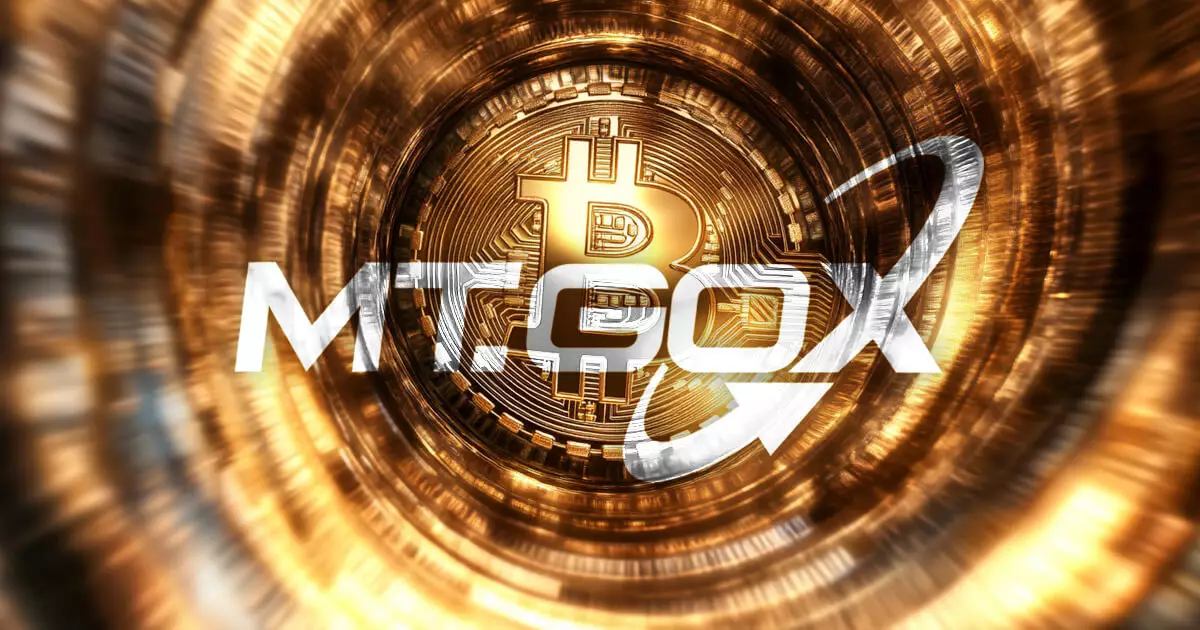In a startling move that has attracted attention across the cryptocurrency landscape, Mt. Gox, a once-prominent exchange that fell into disarray following a catastrophic hack, has shifted over $2 billion worth of Bitcoin into newly minted wallets. According to Arkham Intelligence, this significant transfer occurred on November 4, at 23:38 UTC. The data reveals that 30,371 BTC was primarily sent to an anonymous wallet labeled “1FG2C,” while another 2,000 BTC was directed to a separate address known as “15gNR.” These developments have raised eyebrows in the crypto community, particularly considering the historical context of Mt. Gox and its past challenges.
Interestingly, the recent activity concerning the Mt. Gox wallet hints at a potential ramp-up in transactions. The wallet has moved a staggering 32,871 BTC—valued at around $2.22 billion—over a mere four-day span. Among these transfers, a minor but noteworthy portion of 296 BTC, roughly translating to $20.13 million, found its way to wallets associated with well-known exchanges, namely OKX and B2C2. The timing and scale of these movements have provoked heightened speculation regarding Mt. Gox’s plans for its remaining holdings, potentially influencing market dynamics in unpredictable ways.
To fully appreciate the weight of these transactions, a glance at history is crucial. Mt. Gox, which became synonymous with the failures in crypto security following a high-profile hack in 2014, holds a complex legacy. At the time, approximately 950,000 BTC vanished, a loss that inflicted substantial damage on investor sentiment and trust in the crypto market as a whole. Even today, those missing coins—now valued at more than $58 billion—cast a long shadow over the exchange’s operations.
In its ongoing efforts to redeem its credibility, Mt. Gox continues to issue Bitcoin and Bitcoin Cash repayments to its creditors. The process utilizes various platforms, including Kraken, Bitstamp, and BitGo, facilitating a gradual restitution of lost funds. Notably, Mt. Gox recently extended its repayment timeline, shifting the deadline from October 31, 2024, to October 31, 2025. This decision indicates a conscientious approach to ensuring complete reimbursement to all creditors, albeit prolonging the uncertainty regarding the distribution of their remaining assets.
Future Market Considerations
As these developments unfold, the implications for the cryptocurrency market are profound. The continual movement of funds from Mt. Gox—especially as it pertains to significant assets—can create volatility within an already fragile market environment. Traders and investors are wary as they monitor potential sell-offs or strategic moves that may arise from these transactions. There are concerns that once the entirety of Mt. Gox’s remaining assets hits the market, it could trigger fluctuations in Bitcoin’s price.
The recent activities surrounding Mt. Gox are not merely transactions; they are potential catalysts for broader changes within the cryptocurrency realm. As the market grapples with the shadows of its past and the realities of emerging trends, the coming months will be pivotal in determining how this storied exchange influences the future of digital currencies. The dual narratives of redemption and speculation stand to create a dynamic interplay between history and future possibilities for investors and enthusiasts alike.

